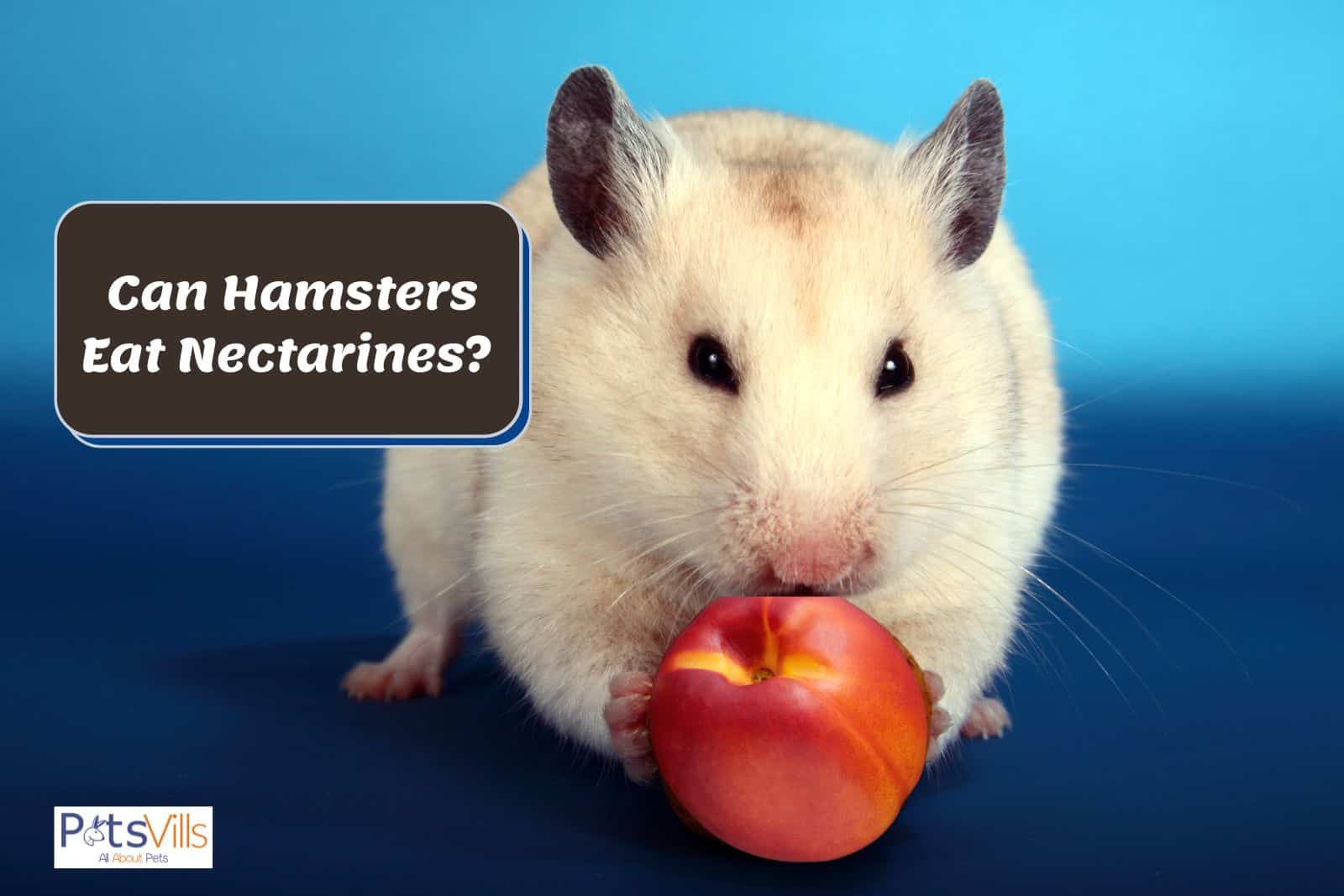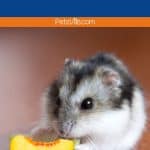Can hamsters eat nectarines? Nectarines are a type of peach that is usually smaller than a regular peach, but are they safe for hamsters?
Hamsters can eat nectarines in moderation because they are sugary fruits. Find out how and how often to give nectarines to your hamster.
Read more!
CHECK: What’s the Best Hamster Food?
Table of Contents
Key Takeaways
- Hamsters love nectarines.
- Nectarines have a lot of nutrients that are good for hamsters.
- Baby hamsters can also eat nectarine.
- Give one nectarine per day to your hamster.
Is It Safe for Hamsters To Eat Nectarines?
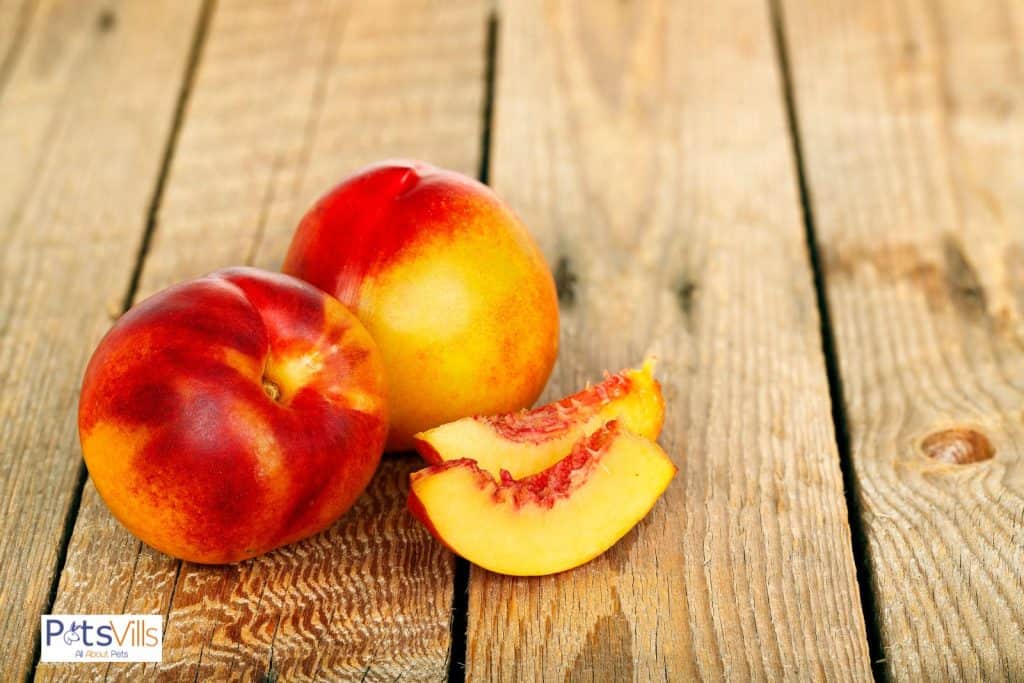
Nectarines are a type of peach that has smooth skin, and they’re usually smaller than peaches. Nectarines also have a higher sugar content than peaches, so they’re sweeter and juicier.
Nectarines are safe for hamsters to eat as long as you don’t give them too much at once. As with any fruit or vegetable, moderation is key when feeding your hamster nectarine slices.
Hamsters should not overeat nectarine because it can cause diarrhea or constipation. This is especially true if your hamster eats a large amount at once or if you feed them too much fruit in general.
Hamsters are omnivores who need both animal protein and plant matter to stay healthy — so if you want to avoid diarrhea or constipation from nectarines, feed them in moderation (no more than one piece per day).
Benefits of Nectarines for Hamsters
Nectarines are an excellent food for hamsters. They are sweet fruits but also provide your pet with many nutritional benefits. These are the benefits of nectarines to hamsters. (1)
1. Nectarines Are an Excellent Source of Vitamin C
Nectarines help to keep your hamster’s immune system strong because they give a boost of vitamin C.
Vitamin C also protects against free radicals that can cause damage to cells, which can lead to serious health problems if not stopped in time.
2. Nectarines Are Also Rich in Potassium and Fiber
With potassium, nectarines help to prevent blood pressure from rising too much by regulating blood flow through the body.
Fiber is essential because it helps keep your hamster’s digestive system working properly, so they don’t suffer from constipation or diarrhea.
3. Nectarines Have Beta Carotene
Nectarines are rich in Beta Carotene, an antioxidant that fights cancer-causing free radicals in the body and may reduce the risk of certain types of cancer when consumed regularly by humans and animals.
4. Nectarines Provide Vitamin A
Vitamin A, one essential vitamin that nectarines have, supports good vision and healthy skin and hair growth in hamsters. (2)
Can Baby Hamsters Eat Nectarines?
The answer is yes. Hamsters are omnivores and will eat fruits, vegetables, grains, insects, and other small animals.
This means that you can feed your baby hamster nectarines, but you should ensure that you do not give them too much of it.
You should feed your baby hamster one or two nectarines once every few days as part of their diet.
Nectarines provide your hamster with some vitamins and minerals, such as vitamin A and potassium, but they also contain sugar, which can cause weight gain if given too much at once.
READ MORE: Are Cherries Good for Hamsters?
How To Feed Nectarines to Hamsters?
Hamsters are small animals, and they eat a lot. They can eat almost any kind of food you give them, but there are some foods that they love to eat. One of these foods is nectarines.
Hamsters eat nectarines because they are a delicious fruit, sweet and juicy. They also contain lots of vitamins and minerals to help your hamster stay healthy.
If you want to know how to feed nectarines to hamsters, follow these steps:
1. Wash the nectarine thoroughly with cold water and dry it with a towel before cutting it open with a sharp knife or kitchen scissors.
Wash the knife or scissors before using them again for another type of food for your hamster.
2. Cut the nectarine into small pieces so your hamster can eat it easily without choking on large pieces of fruit or pits from nectarines sticking out from the middle of each slice.
Your hamster will enjoy eating slices of fruit when he is hungry after running around in his wheel all day long!
How Often Can Hamsters Eat Nectarines?
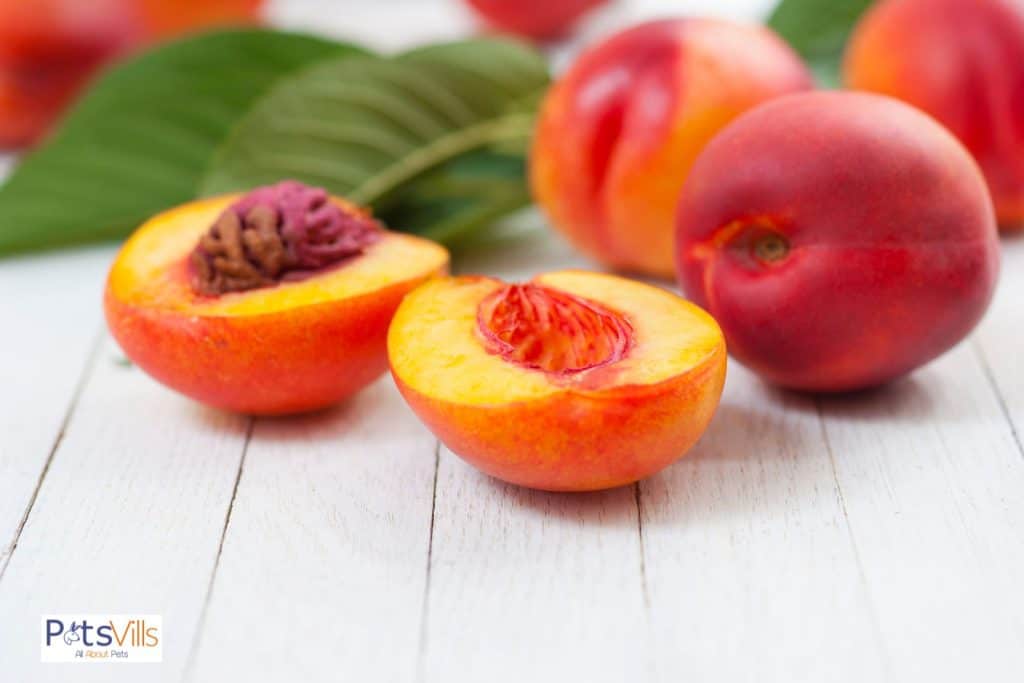
Hamsters love nectarines, but you must be careful about how often you feed them this fruit. Nectarines are high in sugar, which can lead to obesity and diabetes in hamsters.
The good news is that hamsters don’t need a lot of nectarines, so as long as you keep that in mind and don’t overfeed them this treat, you should be fine.
It’s safe to feed your hamster one nectarine a day. If your hamster eats two nectarines a day, it will probably become overweight.
You can also cut up small pieces of nectarines so that each piece is less than half an inch.
This way, each piece would be only one nibble size for your pet and shouldn’t cause any problems if they overeat at once.
READ MORE: Orange for Hamster – Is It Safe For Hamster?
FAQs
Are peaches toxic to hamsters?
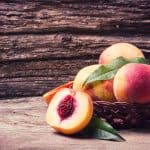
No, peaches are not toxic to hamsters. You can give peaches to them; just avoid canned and dried ones since they have too much sugar.
Can you overfeed a hamster?
Yes, sometimes people overfeed hamsters. Hamsters hoard food in their cheeks but can have digestive problems if given too much food. Give them about 1 to 2 spoons of food every day.
Conclusion
Hamsters can eat nectarines, but only in small quantities. Like the majority of fruits, nectarines are sugary foods, which is not good for hamsters.
The animal’s digestive system cannot handle large amounts of sugar, so it can cause diarrhea or other problems. There is not enough protein or fat in nectarines to make them essential to your hamster.
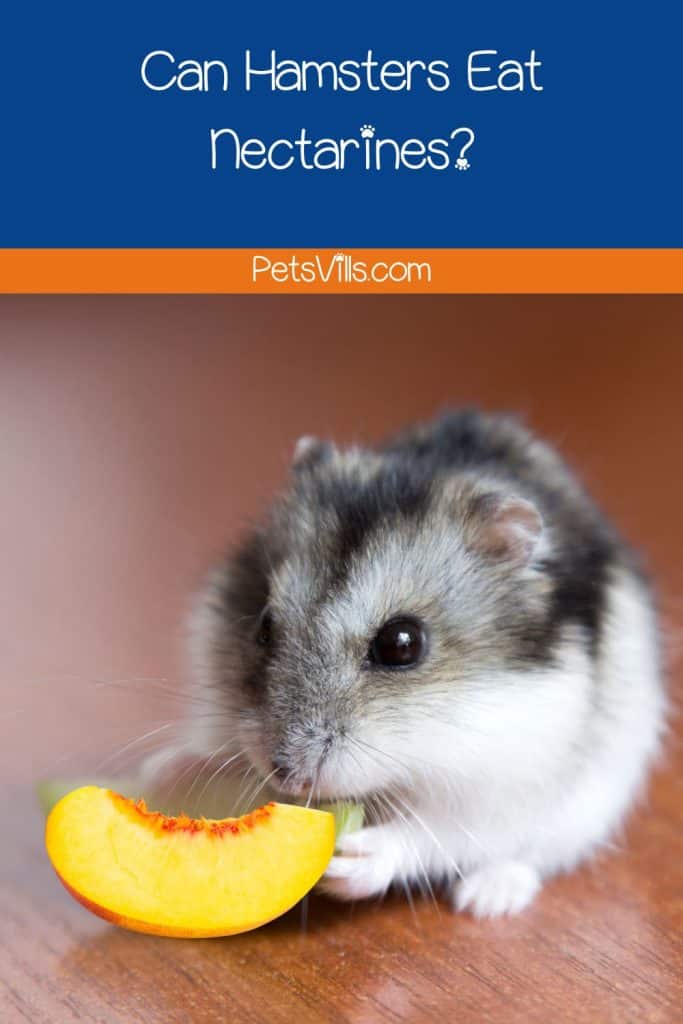
So, did you ever feed nectarines to your hamster? Let us know in the comments section!
References
- 1. Gil MI, Tomás-Barberán FA, Hess-Pierce B, Kader AA. Antioxidant Capacities, Phenolic Compounds, Carotenoids, and Vitamin C Contents of Nectarine, Peach, and Plum Cultivars from California. Journal of Agricultural and Food Chemistry [Internet]. 2002 [cited 2022 Nov 1];50:4976–82. Available from: https://www.academia.edu/31801238/Antioxidant_Capacities_Phenolic_Compounds_Carotenoids_and_Vitamin_C_Contents_of_Nectarine_Peach_and_Plum_Cultivars_from_California?from=cover_page
- 2. Nutrition NRC (US) S on LA. Nutrient Requirements of the Hamster [Internet]. www.ncbi.nlm.nih.gov. National Academies Press (US); 1995. Available from: https://www.ncbi.nlm.nih.gov/books/NBK231928/

My name is Ben Roberts, and I absolutely love animals. So, naturally, I love writing about them too! As far as my animals, I have a Pit-bull, a Beagle-lab mix, a Chihuahua, and one old cat. Each one of them provides me with a new adventure every day. And the best part is they’re all best friends. Well, except the cat when he gets a little annoyed.
FIND HIM ON: FACEBOOK and TWITTER.
Read his latest ARTICLES
Learn more about Benhere

